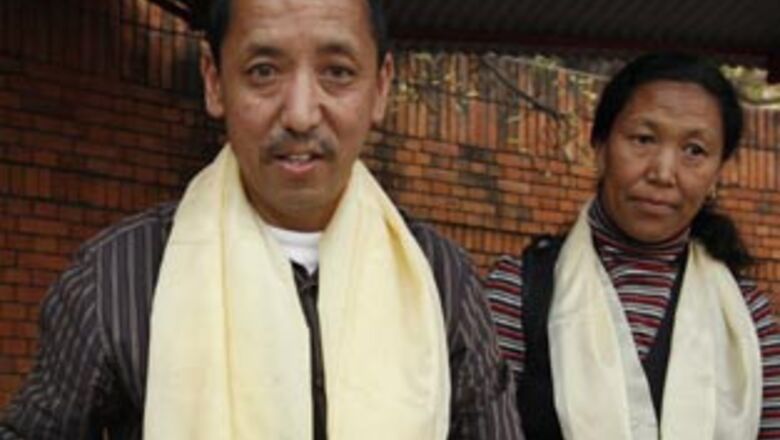
views
Kathmandu (Nepal): A Sherpa guide who holds the record for conquering Mount Everest the maximum number of times, set off on Monday on a new expedition to scale the world's highest mountain for the 19th time.
Appa, who like most Sherpas goes by only one name, flew out of the capital, Katmandu, with his team on Monday for the small airstrip at Lukla, from where they will trek to Everest's base camp and spend a few days acclimatising and preparing for their summit bid in May.
"Everest is not easy to climb, but after scaling the summit so many times, I am more confident and experienced," Appa said. "It should not be too difficult but I have to always be careful."
He first climbed the 29,085-foot (8,850-meter) summit in 1989 and has done so almost every year since. His closest rival is fellow Sherpa guide Chhewang Nima, who has made 15 trips.
Appa, 48, and his fellow climbers also plan to carry down loads of trash that has accumulated on the snowy slopes. He even hopes to educate other climbers about the negative impact that human waste has on the mountain.
"We are taking hundreds of bags that can be used to store human waste and carry them down the mountain," Appa said.
Appa said most climbers carry down garbage such as food packages, empty oxygen tanks and rope but leave behind human waste. He and his team plan to collect their own excrement — as well as any trash left behind by other expeditions — and bring it down the mountain as an example to others.
"The mountain is not just a god for us but the snow and ice is the source for water we drink," he said. "Leaving behind human waste is not just insulting to the mountain God but also contaminates the source of water."
Like most Sherpas, Appa grew up in the foothills of Everest and began carrying equipment and supplies for trekkers and mountaineers at an early age.
Sherpas were mostly yak herders and traders living in the Himalayas until Nepal opened its borders to tourism in 1950. Their stamina and knowledge of the mountains makes them expert guides and porters.


















Comments
0 comment